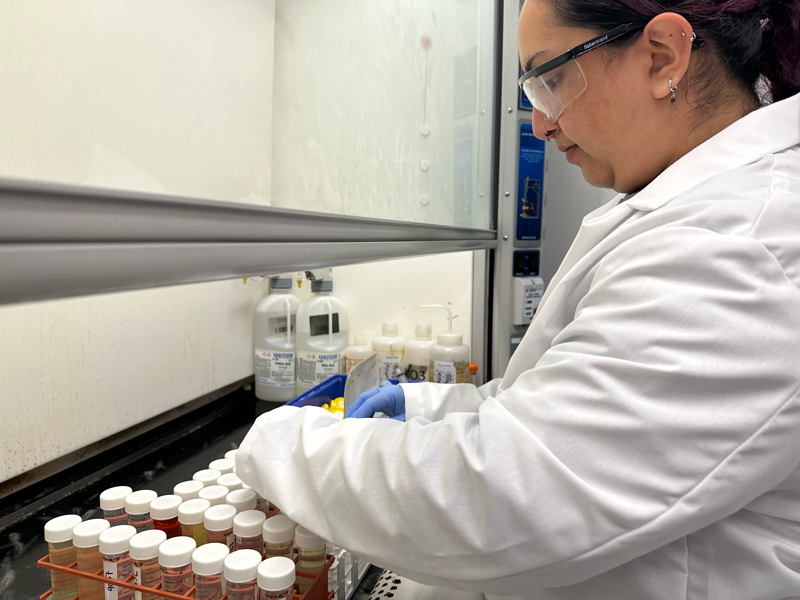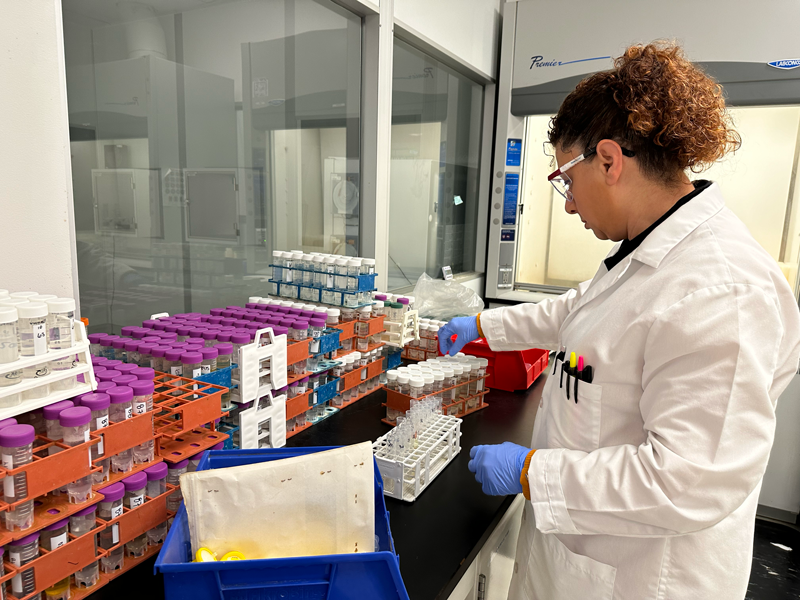Reviewed and Approved by Maged Sharaf, Ph.D., Senior Director, Labeling, Cannabis and Claims Consulting Services, EAS Consulting Group
1-Minute Summary
- There are no U.S. Federal regulations that establish specific limits for heavy metals like lead or mercury in cosmetic products.
- Many states have enacted their own legislation for heavy metals in cosmetics, creating a patchwork of requirements that manufacturers must decipher.
- Pending legislation in states like New York and Illinois could expand ingredient bans further, affecting future formulation and labeling decisions.
- Manufacturers must conduct validated testing and consult regulatory experts to remain compliant across multiple state jurisdictions.
MoCRA Made Big Changes, But Setting Heavy Metals Limits is Not Among Them
The Modernization of Cosmetics Regulation Act (MoCRA), passed in 2022, marked a turning point for U.S. cosmetics regulation. It brought many updates, including mandatory safety substantiation, facility registration, product listing, and serious adverse event reporting. These new requirements are reshaping how manufacturers develop, test, and document their products.
However, despite the magnitude of these reforms, MoCRA so far has not established limits for heavy metals, such as lead or mercury, in cosmetic products.
In the absence of federal benchmarks, individual states are stepping in, enacting their own laws to restrict or ban heavy metals and other toxic substances in cosmetics. The result is a regulatory patchwork of rules that manufacturers must navigate based on where their products are sold.
This guide provides a state-by-state overview of current heavy metals cosmetic regulations to help you understand the requirements and avoid costly fines.

State-by-State Cosmetic Legislation on Heavy Metals
Several states have recently passed laws that ban or limit heavy metals in cosmetic products. Let’s start with one of the most important states given its economic clout – California.
California
Law: AB 2762 – Toxic-Free Cosmetics Act
Effective: Jan. 1, 2025
Summary: Bans several intentionally added ingredients, including mercury. However, the legislation also says, “If a cosmetic product made through manufacturing processes intended to comply with this chapter contains a technically unavoidable trace quantity of an ingredient listed in subdivision (a) and that trace quantity stems from impurities of natural or synthetic ingredients, the manufacturing process, storage, or migration from packaging, that trace quantity shall not cause the cosmetic product to be in violation of this section.”
Related program: The California Safe Cosmetics Program also requires manufacturers to report the use of chemicals linked to cancer or reproductive harm. The website linked above offers resources to help with compliance, including a reporting portal, reporting instructions, and a video series on compliance.
Washington
Law: HB 1047 – Toxic-Free Cosmetics Act
Effective: Jan. 1, 2025
Summary: Prohibits cosmetics containing intentionally added lead, mercury, and their compounds.
Note: Washington sets a lead limit of just 1 ppm, the strictest in the U.S.
Minnesota
Law: 325E.3892
Effective: July 1, 2023
Summary: The statutes prohibit lead and cadmium in a variety of consumer products, with cosmetics and personal care products among them. Heavy metals limits are set at not more than 90 ppm for lead and not more than 75 ppm for cadmium.
Maryland
Law: HB 643 – Public Health – Cosmetic Products – Ingredient Prohibition
Effective: Jan. 1, 2025
Summary: Bans intentionally added mercury in cosmetics. The bill does make provision for cosmetic products that were manufactured through a process intended to comply with the bill but that contain a “technically unavoidable trace quantity of a prohibited ingredient”.
Oregon
Law: SB 546
Effective: Jan. 1, 2027
Summary: Prohibits intentionally added chemicals or classes of chemicals above the “practical quantification limit”, including mercury and mercury compounds. The bill also includes a provision for the Oregon Health Authority to maintain a list of high-priority chemicals and practical quantification limits.
The Oregon bill also requires manufacturers to include notice on their websites of “high-priority” chemicals used in their products.
Maine
Bill: Safe Cosmetics Act
Effective: Jan. 1, 2027
Summary: Prohibits the sale of cosmetic products that contain certain intentionally added ingredients, including lead, mercury, or formaldehyde. Of note, the bill includes the following provision: “A person distributing, selling or offering for sale a cosmetic product does not violate the Act if the cosmetic product contains only a technically unavoidable trace quantity of a prohibited ingredient due to impurities from a natural or synthetic ingredient used in the manufacture of the cosmetic product, from the manufacturing process or from storage of the cosmetic product or due to migration of the ingredient from the packaging of the cosmetic product.”
Vermont
Bill: 9 V.S.A. § 2494b
Effective: Jan. 1, 2026
Summary: Prohibits the sale of cosmetic products to which several substances have been intentionally added, including mercury and its compounds and lead and its compounds. As with many other states, the Vermont law includes provision for products that may contain a “technically unavoidable trace quantity” of a chemical or chemical class listed in subsection (a) of the legislation, including mercury, lead, and their compounds.
Georgia
Bill: Safe Cosmetics Act
Effective: Jan. 1, 2026
Summary: Prohibits the sale of cosmetics that contain a “restricted substance”, including lead, mercury, and phthalates. Manufacturers must also disclose the ingredients, chemicals of concern, and restricted substances in cosmetics distributed, sold, or offered for sale in Georgia. The bill includes an exemption from the disclosure requirements for “small, local manufacturers” (10 or fewer employees).

What are the Proposed State Regulations for Heavy Metals in Cosmetics?
A few states have proposed legislation working its way through the process that would prohibit intentionally added heavy metals. Of note, many states are also working on bills to ban PFAS in cosmetics, another key area where industry needs to monitor developments. Here is a look at pending regulations for heavy metals.
New York
Bill (Proposed): Beauty Justice Act (S4265A)
Status: In committee
Summary: Proposes to define as “restricted substance” arsenic, cadmium, cadmium compounds, chromium, lead, lead compounds, nickel, and selenium. Also includes formaldehyde, benzene, carbon black, and several other substances. Proposed effective date of Jan. 1, 2028.
Illinois
Bill: Mercury-added Product Prohibition Act (effective since 2009); Chemicals in Cosmetic Products Act (introduced in March 2025)
Summary: Illinois has prohibited the sale of cosmetics and many other products that contain mercury since 2009. However, new legislation was introduced in March 2025, named the Chemicals in Cosmetic Products Act, that would prohibit mercury, in addition to several other chemicals. It is currently working its way through the state senate.
What Cosmetic Manufacturers Should Do Next
If you’re marketing cosmetics in the U.S., you’ll need to navigate state-specific regulations on top of MoCRA’s federal requirements. This means:
- Know where your products are sold and identify any state-specific restrictions that apply.
- Audit your product formulations for restricted heavy metals and other substances, particularly lead and mercury.
- Conduct validated lab testing on both raw materials and finished products to confirm compliance with applicable state standards.
- Track proposed legislation in states where you are or plan to sell your products.
- Maintain documentation to demonstrate due diligence, especially when using naturally derived ingredients that may contain trace metals.
Need Help Interpreting State Regulations?
Understanding the nuances of each state’s cosmetic regulations is no small task. That’s where expert support becomes invaluable.
Contact EAS Consulting Group, a Certified Group company, for guidance on how current and emerging state regulations may affect your formulations, labeling, and compliance strategy.
Contact Certified Laboratories for cosmetic and personal care product testing, including heavy metals testing using validated methods. With ISO 17025-accredited labs, we provide the data you need to ensure your cosmetics comply with state regulations.
